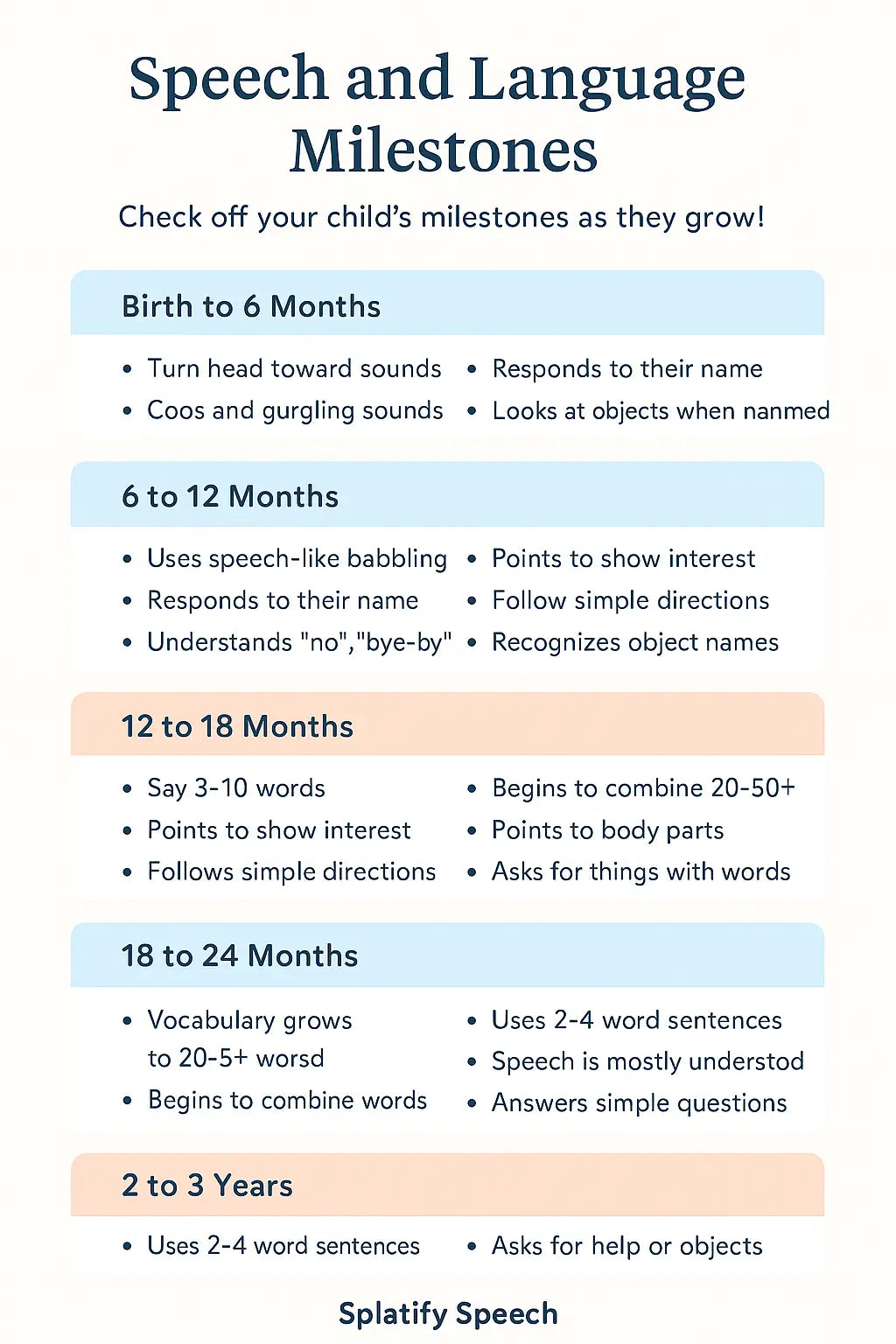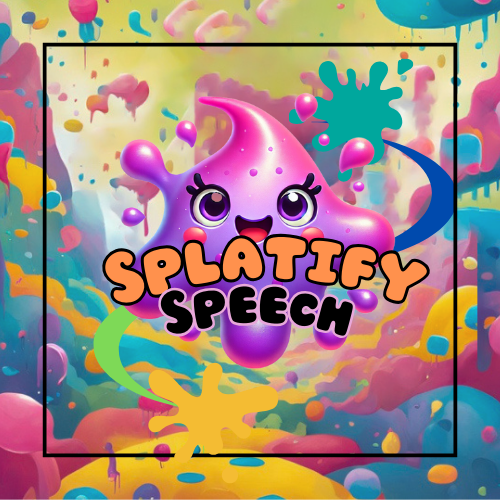
Early Speech and Language Milestones: What to Expect From Birth to Age 3
Your baby’s first words might seem far away—but did you know that speech and language development starts at birth?
From day one, your child is listening, watching, and learning how to communicate. And as a parent, knowing what to expect (and when) can help you support their development—and catch any potential delays early.
At Splatify Speech, we believe speech and language growth should feel exciting, not stressful. So let’s walk through the key milestones from birth to age 3, what’s considered typical, and when to follow up with a speech-language pathologist (SLP).
Why Early Speech and Language Skills Matter
Speech and language are the building blocks of learning, behavior, and relationships. They impact everything from reading and social skills to classroom success.
The earlier we identify a delay or disorder, the sooner we can help your child thrive. That’s why knowing the expected communication milestones by age is so important.
Milestones: Birth to 6 Months
Your baby is soaking it all in!
What to expect:
- Turns head toward sounds
- Reacts to loud noises
- Coos and makes gurgling sounds
- Smiles when spoken to
- Begins to babble (like “ahh,” “ooo”
Support Tip: Talk, sing, and respond to your baby’s sounds. They’re learning through every interaction.
Milestones: 6 to 12 Months
Now the real babbling begins.
What to expect:
- Uses more speech-like babbling (e.g., “ba-ba,” “da-da”)
- Responds to their name
- Understands simple words like “no” or “bye-bye”
- Looks at objects when you name them
- Tries to imitate speech sounds
Support Tip: Name what you see and do. Babies are learning that everything has a word.
Milestones: 12 to 18 Months
The first words appear—and they’re magical.
What to expect:
- Says 3–10 words (like “mama,” “ball,” “up”)
- Points to objects to show interest
- Follows simple directions (“Come here”)
- Uses gestures and sounds to express needs
- Recognizes familiar people and items by name
Support Tip: Expand on what your child says. If they say “ball,” you can say, “Yes! A red ball! Let’s throw the ball.”
Milestones: 18 to 24 Months
Language starts to take off—fast!
What to expect:
- Vocabulary grows to 20–50+ words
- Begins to combine two words (“more juice,” “mommy go”)
- Points to body parts when named
- Asks for things using short phrases
- Begins to ask simple questions (“What’s that?”)
Support Tip: Keep conversations going, even if your child isn’t saying full words yet. Modeling is key.
Milestones: 2 to 3 Years
Now you’ll hear more mini sentences and clearer words.
What to expect:
- Uses 2–4 word sentences
- Speech is about 50–75% understandable to others
- Can answer simple questions
- Understands “in,” “on,” “under”
- Asks for help or tells you what they want
Support Tip: Read books together daily, ask open-ended questions, and give your child time to answer.
When to Reach Out to a Speech-Language Pathologist
Every child develops at their own pace—but here are some signs your child might need a speech-language evaluation:
- No babbling by 6–9 months
- No first words by 15 months
- Fewer than 50 words or no two-word phrases by 24 months
- Trouble understanding or following simple directions
- Speech that’s hard to understand by age 2.5 or 3
- Limited eye contact, gestures, or interest in communication
If you’re not sure, trust your gut. You know your child best.
Speech Growth Starts at Home
The good news? Early support works. Whether it’s through everyday routines, play, or professional help, you have the power to boost your child’s speech and language skills from the start.
At Splatify Speech, we offer parent-friendly tools, guides, and tips to make speech support feel simple and natural. You’re not alone—and we’re here to help.
Next Steps:
- Bookmark this guide as a quick reference
- Download our free speech milestone tracker
- Explore our speech sound resources at SplatifySpeech.com
- Follow us on Instagram and Facebook for daily support and tips
